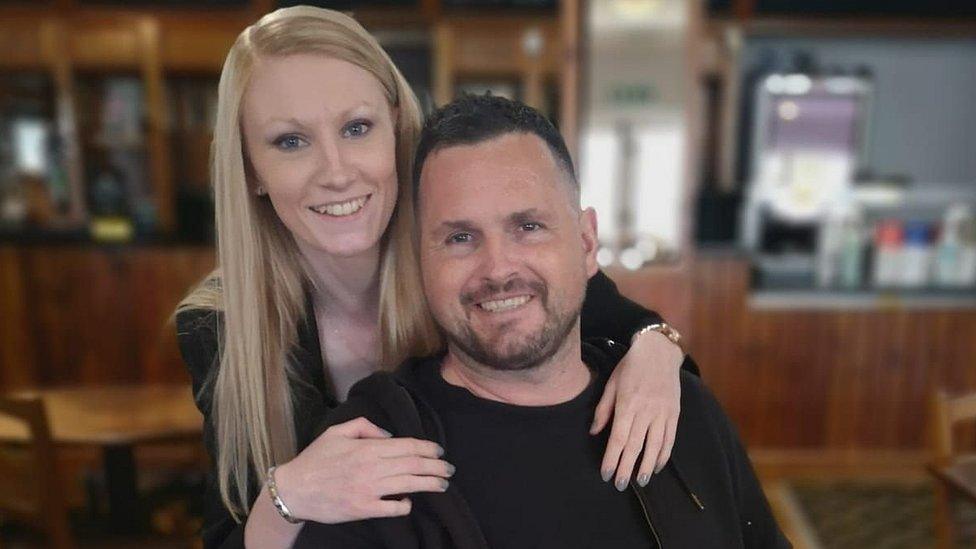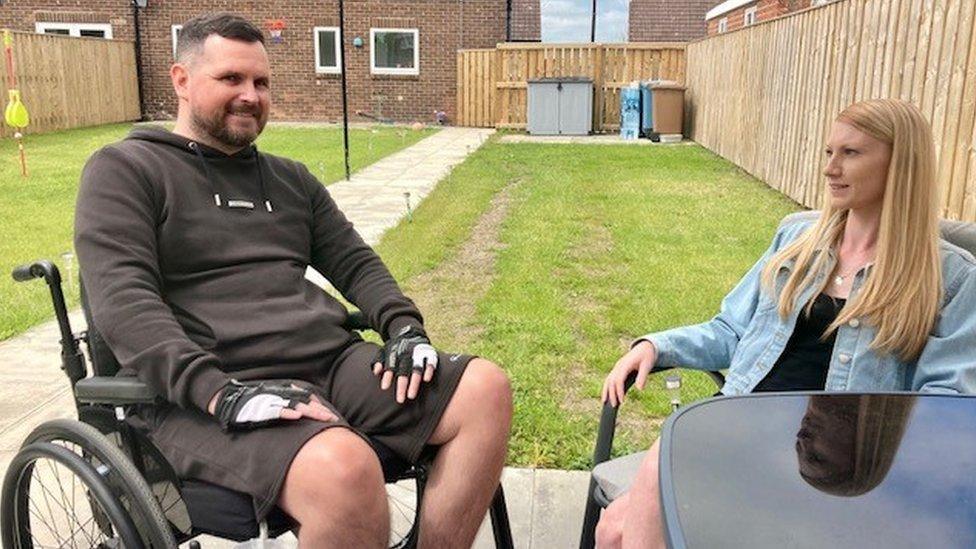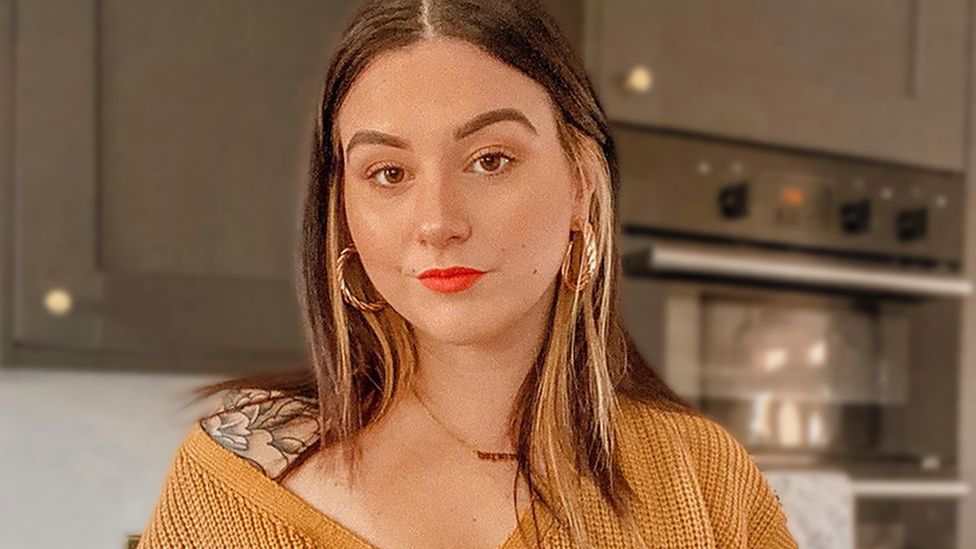Paralysed Ponteland man may have to move to get NHS IVF
- Published

David Brydon and Ashley Richardson are seeking IVF treatment
A paralysed man seeking in vitro fertilisation (IVF) to have children with his partner has said they may have to move after NHS funding was rejected.
David Brydon, 41, of Ponteland was paralysed from the waist down when he broke his neck in a fall in 2021.
He and partner Ashley Richardson, 29, had their application for IVF funding refused by regional decision-makers as he already has a daughter.
North East and Cumbria Integrated Care Board said it could not comment.
Mr Brydon, who has been with Ms Richardson for six years, had gone to get something from his car when he tripped and fell down the stairs at the couple's Northumberland home.
'Discrimination'
"I instantly knew something had happened, I could not feel my legs," he said.
His injuries left the couple unable to conceive naturally so they applied for NHS funding for IVF, but it was turned down and a follow-up appeal was rejected.
Guidelines set by the National Institute for Health and Care Excellence (NICE) allow three cycles of free IVF funded through the NHS.

David Brydon and Ashley Richardson face the prospect of raising £10,000 or moving to Lancashire where they meet funding criteria
But rules vary and some parts of England allow just one cycle while others have stricter criteria such as not allowing it for anyone who already has a child.
Mr Brydon said Ms Richardson did not have children already and was being "discriminated" against.
"[She] does not have any kids so to give her a child would mean the world, it would mean everything," he said.
'Cruel in the extreme'
The couple receive Universal Credit, disability payments and a carer's allowance after Ms Richardson left her job to care for her partner.
They now would either have to fund the treatment themselves, which could cost more than £10,000, or be forced to move to another region such as Lancashire where there are different rules.
Ms Richardson said she was "shocked" by the refusal.
"I could go and get a sperm donor on the NHS yet I have a partner who I love, who I want to have a child with, but because he had a child 10 years ago it's not an option," she said.
The decision to refuse NHS treatment has been described as "appalling" and "cruel" by charity Fertility Network UK.
"National guidance is all about who is clinically eligible - this is social rationing and it is absolutely cruel in the extreme and it shouldn't be happening," chief executive Dr Catherine Hill said.
"We are the country that pioneered IVF, we shouldn't be doing this to people who desperately need help," Dr Hill added.
North East and Cumbria Integrated Care Board, which now sets the criteria around eligibility for IVF in the region, external, said it could not comment on individual cases.
The Department of Health and Social Care said the new Women's Health Strategy, external detailed plans for addressing regional variations to NHS-funded IVF services, including where couples with a child from a previous relationship were affected.
"The National Institute for Health and Care Excellence, who set the standards for clinical care, are currently reviewing the fertility guidelines and will consider whether the current recommendations for access to NHS-funded treatment are still appropriate," a spokesperson added.
"This review will be published next year but we expect the NHS, on a local level, to be improving their offer to fertility patients in anticipation of the new guidelines."

Follow BBC North East & Cumbria on Twitter, external, Facebook, external and Instagram, external. Send your story ideas to northeastandcumbria@bbc.co.uk, external.
- Published29 May 2023

- Published18 May 2023